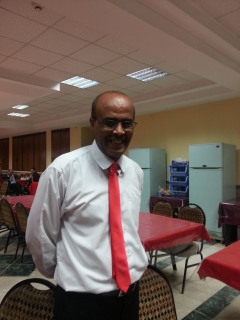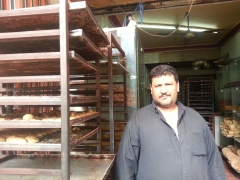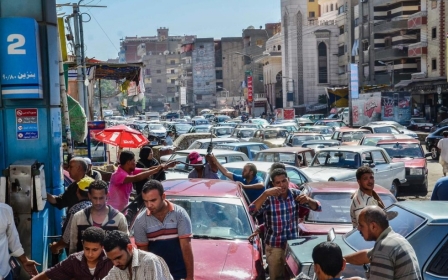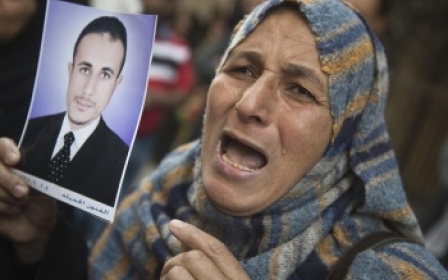Voices from Egypt: How will increased energy prices affect you?
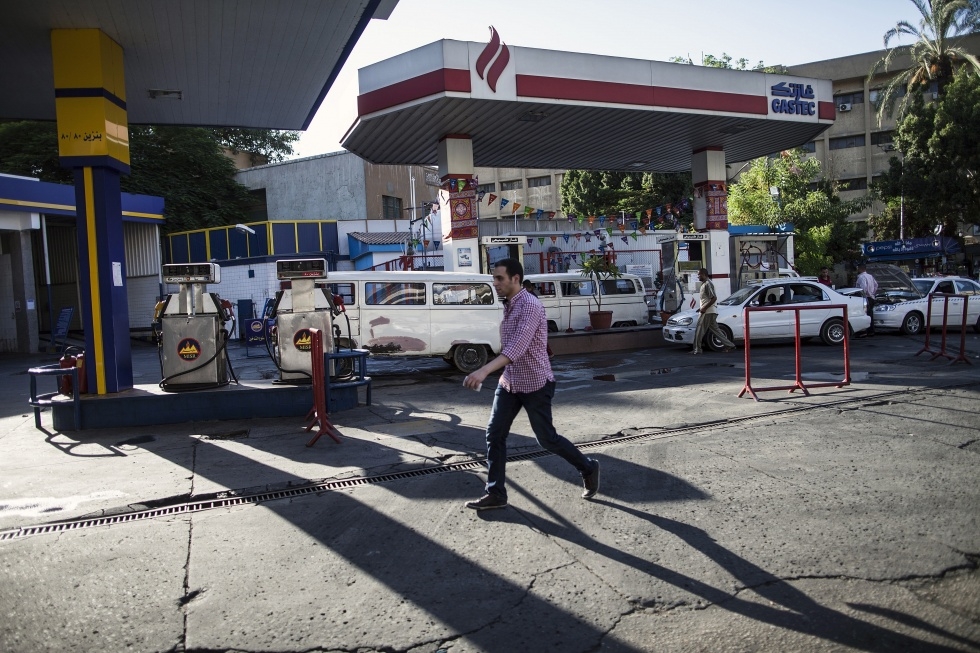
The Egyptian government on Friday announced substantial raises in mainstream fuel prices - ranging from 40 to 78 percent - and an increase in electricity tariffs. A reallocation of costs in the new state budget, officials say, was necessary to relieve a swelling deficit without having to borrow more money the country could not afford to pay back.
While social justice was a primary demand during Egypt's watershed popular uprising in 2011, over the past three years, the country's turmoil-ridden political course has battered the country's economy.
Egyptians speaking to Middle East Eye voiced conflicting feeling towards Friday's bold move:
Ahmed Saleh, 54, waiter:
At home, I always make sure that the television is not on all the time and the lights are turned off when the rooms are not in use, but as soon as I receive the new electricity bill, I will have to see how I will manage the house’s electricity usage within the extra cost which I still cannot estimate. But I consider it a sacrifice for the sake of my children’s future.
I voted for Sisi and I think he and Prime Minister Ibrahim Mahlab are in a difficult position, but they are doing their best. But still, I am worried. Everything else will be more expensive now. Vegetable traders, for example, will pass the extra transport cost on to all consumers, rich and poor. And the government has yet to show real intention on applying firm measures to reallocate subsidies in favour of the poor and regulate price surges that are sure to follow such an increase in power costs. Otherwise, the poor will suffer the most, as they always have.”
Fatma Nour, 30, housewife: “Ahead of Ramadan, even before the new price raises, I bought much less supplies than I did the year before. And now I’m worried about going to the market and finding out I can’t buy all the things I normally do on a daily basis. How could [Prime Minister] Mahlab call these decisions reforms while in reality they are unfair to the widest sector of the society? The people are barely surviving. It was expected that they would raise prices, but even Hosni Mubarak wouldn't have dared to do so at these rates.
What also worries me is that those who are genuinely critical of the government know they will face repression and intimidation if they try to speak out. Mahlab and his ministers can keep calling these 'reforms', but all I see is a government of old men pursuing the same strategies of the old regime.”
Saniya, 60, newspaper seller: "Everyone who came to buy newspapers this morning looked so depressed and frustrated as they looked at the headlines. It’s just too much and all at once. We cannot handle these new rate increases after three years of worsening conditions.
I used to pay some $6 for my electricity bill in the winter because I have to use a water heater and, over the past two winters, it jumped to $17. I largely rely on subsidised food supplies, but now the government could lift food subsidies at any time, like it did with electricity and gas in one go. I have no idea how I will manage my expenses with these new prices.
After the presidential elections I was optimistic, but now I have no idea how to feel. We just have to bear with these new circumstances. I feel sorry for my son and youths like him who will end up paying for all of this in the future.”
Mohamed Rashwan, 43, co-owner of a bakery:
I pay $0.69 for transportation to and from work, and just one day after the new prices were announced, I paid double the fare on my way to the bakery. I have six kids. I might not be able to buy them new clothes for the Eid. We used to eat meat every day, now we’d be lucky if we could afford it once a week.
Everyone in the media said that Sisi would improve the country’s conditions, but so far I’ve seen no indication of this intention. During Morsi’s time, criticism was ruthless. Now, no one is speaking up for those who are truly suffering from the government’s decisions. It’s either they’re ordered to ignore us, or they are afraid. But in either case, if everyone keeps blindly cheering for this government, nothing will improve.”
Ahmed Awad, 35, taxi driver: “The government can say what it wants, but it cannot control those who will exploit the situation to raise prices further. The private minibus drivers doubled the fares within minutes of the gas prices decree. The government announced new taxi tariffs, but no stated date of implementation or method of regulation. Things were hard as they were, and now everybody will be affected by these price raises.
I was surprised to find an additional $42 tax while renewing the taxi’s license this morning. The employee looked at me and said ‘Sisi’s president now, there’s nothing you can do.’ I hate to admit it, but he’s right. I didn’t think things were going to turn out that way at all after 30 June. it seems more and more like a mistake and we will pay for it.”
Middle East Eye propose une couverture et une analyse indépendantes et incomparables du Moyen-Orient, de l’Afrique du Nord et d’autres régions du monde. Pour en savoir plus sur la reprise de ce contenu et les frais qui s’appliquent, veuillez remplir ce formulaire [en anglais]. Pour en savoir plus sur MEE, cliquez ici [en anglais].


